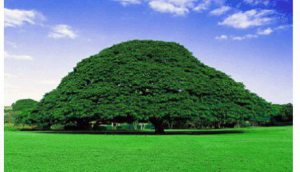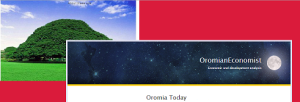Aid to Africa Projected to Fall During Trump’s Presidency December 17, 2016
Posted by OromianEconomist in Aid to Africa.Tags: Africa, Africa and America, Aid, Aid to Africa, Trump and Africa
add a comment
Aid to Africa projected to fall during Trump’s presidency

Report by chartered accountants says US likely to cut spending by reining in development aid.
The report by the Institute of Chartered Accountants in England and Wales (ICAEW) says the Trump presidency raises the risk of the US rolling back development aid, thus affecting dependent countries such as Kenya, Tanzania, Ethiopia, Nigeria and the Democratic Republic of Congo.
The accountancy and finance body said that signs of an expansionary fiscal stance under the Trump administration, coupled with spending cuts to build dollar reserves for infrastructure development, are likely to lead to a decrease in aid to African countries.
“Aid is probably the main channel through which a change in US policy under a new president could impact Africa,” states the fourth quarter (2016) report commissioned by ICAEW and produced by partner and forecaster Oxford Economics.
“Policymakers and businesses across the continent will be keen to see President-elect Trump’s plans for development policies once he takes office,” the report adds.
Donald Trump is expected to be formally inaugurated as the country’s 45th president on January 20, 2017.
According to the report, and drawing on insights from the Organisation for Economic Co-operation and Development (OECD), the US is sub-Saharan Africa’s major donor in bilateral official aid, with over $9 billion distributed to the region to date.
It is followed by the United Kingdom, with just under $4 billion distributed, and France with just over $2 billion.
In terms of official development aid receipts in East Africa, Ethiopia received the largest amount at over $3.5 billion, followed by Kenya and Tanzania with over $2.5 billion each, and Uganda with over $1.5 billion.
Doing business
According to the report, the change in the US administration will also affect Africa’s trade and investment prospects. It states that steady progress is being made in the continent’s business environment, with Mauritius ranked 49th out of 190 countries globally in terms of the ease of doing business.
The World Bank’s Doing Business 2017 report ranked Rwanda at position 56h, Morocco 68th, Botswana 71st and South Africa 74th. Oil giants Nigeria and Angola were ranked 169 and 182 respectively. According to the report, foreign direct investment inflows into Africa fell by 7 per cent to $54 billion in 2015, with decreasing flows to SSA offsetting larger inflows into North Africa.
Large inflows into Angola saw investment into the Southern African region increase by 2 per cent.
East Africa received $7.8 billion in FDI during 2015, a two per cent decrease from 2014; Central African receipts decreased by 36 per cent and West Africa by 18 per cent.
Increase in FDI
The region is expected to see an increase in net FDI in the coming years, with a 10 per cent rise expected in 2017. Tanzania is expected to attract considerable investor interest in the country’s natural gas sector.




You must be logged in to post a comment.